研究所のA先生が大きな賞を受賞しました。
魅力的な教育への取り組みが評価されたものです。
とても嬉しいことです。
〈我が事のように嬉しい〉ではなく〈我が事よりも嬉しい思い〉です。
それは周りのみんなも同じ気持ちに違いありません。
たのしい講座の準備のひととき、みんなでお祝いをしました。
研究所につどう仲間は、実力派ぞろいで、たのしい先生たちです。
その成果が着々と実りつつある春の日々、ますます気合が入る今日この頃です。
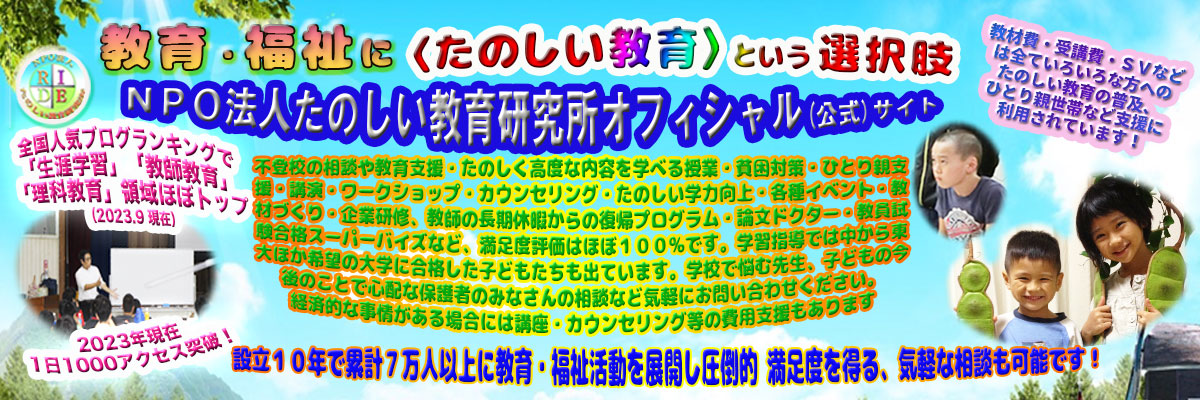
研究所のA先生が大きな賞を受賞しました。
魅力的な教育への取り組みが評価されたものです。
とても嬉しいことです。
〈我が事のように嬉しい〉ではなく〈我が事よりも嬉しい思い〉です。
それは周りのみんなも同じ気持ちに違いありません。
たのしい講座の準備のひととき、みんなでお祝いをしました。
研究所につどう仲間は、実力派ぞろいで、たのしい先生たちです。
その成果が着々と実りつつある春の日々、ますます気合が入る今日この頃です。
最近のたのしい教育研究所のにぎわいはかなりのものです。
毎日かなりのスピードでいろいろな活動をすすめています。
日曜日は久しぶりの「たのしい教育 春の講座」です。
「絵本 30倍の世界」をとりあげる予定なのです。
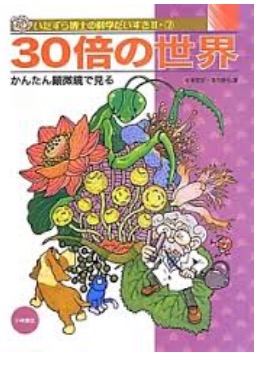 板倉聖宣(仮説実験授業研究会代表・日本科学史学会会長)先生の作成した授業書「30倍の世界」をもとにした絵本なのですけど、何度読んでも流れの中にふに落ちないところが出てきます。気になりながら授業にかけるのは困るので、執筆者に確認することにしました。入院中の板倉先生に質問することはできませんから、共著者の豊田康弘さんに電話してみると、わたしの疑問が杞憂でないことを確認することがわかって、逆におどろきました。
板倉聖宣(仮説実験授業研究会代表・日本科学史学会会長)先生の作成した授業書「30倍の世界」をもとにした絵本なのですけど、何度読んでも流れの中にふに落ちないところが出てきます。気になりながら授業にかけるのは困るので、執筆者に確認することにしました。入院中の板倉先生に質問することはできませんから、共著者の豊田康弘さんに電話してみると、わたしの疑問が杞憂でないことを確認することがわかって、逆におどろきました。
豊田さんと交わした貴重な内容は絵本に出てくる問題のことなので、ここでは割愛させていただきます。
豊田さんとは以前から何度も言葉を交わしたことがあるのですけど、今回は電話で一時間くらいいろいろなことをお話することができました。そのおかげで、授業でのとりあげかたがはっきりしました。とても親切な方です。
はっきりしたところで、さっそくその準備にとりかかった研究所内はあっという間にこういう状態になってしまいました。
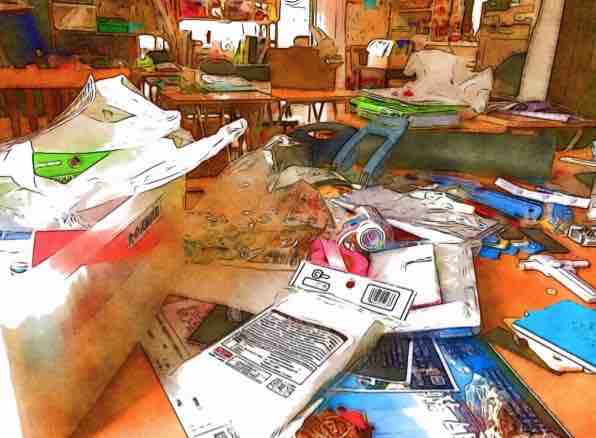 当日、たくさんの人たちの笑顔に出会えると思うと、今からたのしみでなりません。
当日、たくさんの人たちの笑顔に出会えると思うと、今からたのしみでなりません。
気づくと明日は若い先生方がたくさんやってきます。
片付けなくちゃ、と思っていると、片付け名人の仲間がしっかり30倍の世界の教材箱をつくって整理してくれました。わたしがやったら一時間では終わらなかったことでしょう。
いろんな人たちの力が、たのしい教育研究所をどんどん大きくしてくれています。
1日一回の「いいね」クリックで〈たのしい教育〉を広げてみませんか ➡︎ いいねクリック=人気ブログ!=
前回から「たのしい教育研究所」の根幹に関わる〈たのしさ論・幸福論〉について書いているので、読む方も気合が要るかもしれません。「人間がもっとも幸せを感じる、たのしいと感じるのは〈自分の可能性、自分の力が伸びゆくことを実感している時〉だ」という話です。もう少しお付き合いください。
「いいね」クリックで〈たのしい教育〉を広げませんか➡︎ いいねクリック=人気ブログ!=
個人的な話ですが、わたしは本が大好きで〈活字中毒〉を自覚するほどです。これまでかなりの量の本を読んで来ました。しかし読んだ本の数の何倍もの本が我が家にあります。つまり読んでいない本がたくさんあるのです。その量は、この本をどう処理すればよいのかが問題になるほど膨大です。これは我が家の写真ではありませんが、学校に保管してあった本、すでにデジタル化して処分してしまった本を加えれば、この量の10倍ではきかないとおもいます。
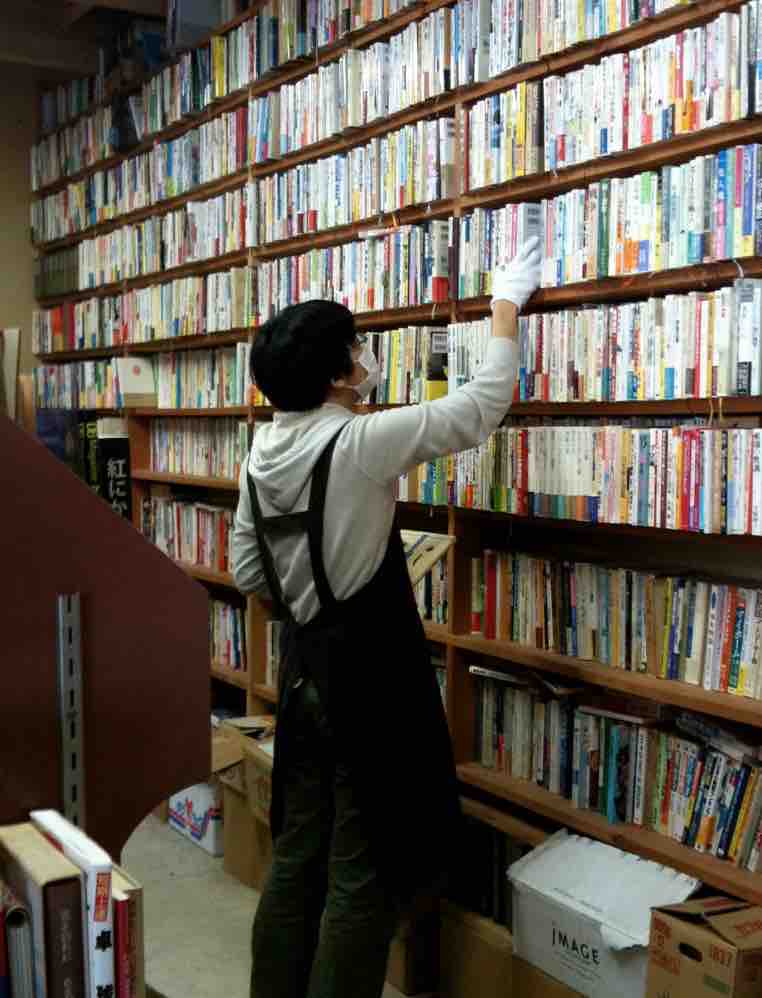 なぜ実際に読むものよりもたくさんの本を買ってしまったのか? それはこの〈たのしさと幸福論〉の構造ではっきりと説明できます。
なぜ実際に読むものよりもたくさんの本を買ってしまったのか? それはこの〈たのしさと幸福論〉の構造ではっきりと説明できます。
これらの本多く、たとえば英語の本なら「この本を読むことでわたしの英語力がさらに高まるだろう」と予想して購入して来たのです。自分の英語の力が高まる可能性を感じて購入して膨大な本を購入してきたのです。
わたしはミステリー小説も好きなので、そのミステリーを解く快感として読んで来た本もたくさんありますが、それらよりもはるかにたくさんあるのが、自分の可能性を高めてくれるであろう本たちです。結果として数十ページで読むのをやめてしまうものが多いのですけど、その本を買う時の期待感はとても高く「この本でこの力がたかまるに違いないぞ」とわくわくしながら購入してきたものばかりです。
前回書いた〈旅をする前は旅をしている時くらいたのしいものがある〉という話に強く同感した方からメールが届きましたが、同じことを感じている人達はたくさんいるとおもいます。それと似て実際に〈本を読んでいる時〉と同じくらい、あるいはそれより〈本を選んでいる時〉はたのしいということがあるのです。その可能性を感じている真っ最中だからです。
前回今回と綴っている「幸福論」ですが、世の中にはアラン、ラッセル、ヒルティーをはじめ、著名な人物によって書かれた著書はいくつもあります。「たのしい教育」の原点でもある板倉聖宣も「幸福論」を書いています。
実は板倉聖宣が高校二年の時にはじめて書いた論文が「幸福論」でした。わたしはすでにそれを何百回と読んで来ました。
私が仮説実験授業研究会向けに執筆した本「板倉聖宣哲学入門」や「原子論者の人生論」の中にも書き込んでいるのですが、わたしの本で「板倉聖宣の幸福論」を知ったという人もいるくらい、あまり知られていないものの一つですが、板倉聖宣のことを研究するときに、それを知っていることと知らないこととの開きはとても大きなものだとおもいます。
その「幸福論」の中で板倉聖宣は最も高い位置にある幸福を「絶対自己的自己賞賛」だと書いています。そして板倉聖宣は、十年ほど前「原子論者の人生論」をまとめようと東京に行った私に「いくらか変わったところもあるけれど、自分は今でも高校の頃に書いたその幸福論をまだ超えられないのです」と語っているのです。
〈絶対自己的自己賞賛〉というのは、他者との比較による幸福感ではなく、自分が理想とする自分である〈絶対自己〉が〈今の自分〉を見て賞賛することができるのか、というアイディアです。〈絶対自己〉というのは、フロイトが良心の塊の様な〈超自我〉という概念を提唱して精神分析論を確立しましたが、ある意味それに近い概念です。いずれチャンスがあればもっと詳しく書かせていただくとして、今回のテーマである私の提唱する〈幸福論・たのしさ論〉に戻りましょう。
わたしの掴んだ〈幸福論・たのしさ論〉は板倉聖宣が、〈絶対自己〉が見て〈今の自分〉を評価してくれるのかどうかという、〈誰かから見てどうなんだ〉という評価ではなく、自分の力の高まりや可能性の高まりが最も大きな幸福感を味わわせてくれる・たのしさ感を味わわせてくれるという〈自分自身の感覚〉としての評価です。ですから、絶対自己という、ある意味〈他者〉に測ってもらう板倉聖宣の幸福論とは異なっています。
しかし「たのしさ論・幸福論」的に言えば、〈誰かから見てどうなんだ〉というのではなく〈自分自身の感覚で判断する〉ということがより真理に近い感じがしています。
前回のはじめに「人間がもっともたのしさ・幸せを感じるものが二つある、そしてそれは統合できる気がする」と書きました。
そのもう一つ、人間がもっとも強くたのしさや幸せを感じるのはどういう時か?
それは
周りの人たちのたのしさ感・幸福感を味わうことができる時
です。
人間は社会的な生き物です。長い歴史の中で、他者とのコミュニケーションを深め、周りの人たちを大切にする者たちが進化の中で優遇されて来たことは十分に考えられます。
自分だけのことを優先させたり、相手はどうでもよい、と考えた先祖たちは淘汰されていったことでしょう。群れで移動しながら暮らしていたわれわれの祖先たちが、病気の仲間をほっておかず、その仲間にも食べ物を分け与えていたことは古代人の研究の中で明らかにされていることです。
今の私たち自身のことを考えても、周りの人たちが笑顔でいることが嬉しくて、見ていると自分も笑顔になり、逆に周りの人たちの悲しみを見ることはとても辛く悲しくなります。周りの人たちと仲良く協力して来た私たちにとって、それはとても自然なことだとおもいます。
そろそろ〈楽しさ論・幸福論〉のまとめにしたいとおもいます。
人間が最も幸せを感じること、たのしさを感じることは
・自分の力や可能性が伸びていく時、それを感じている時
そしてもう一つ
・周りの人たちの笑顔やたのしさを感じる時
である、というのが今のわたしの仮説です。
仮説はどうやって検証されるのか?
多数決で決めるものではありません。自分自身で、そうなのかな、と予想を立てて確かめていくことで検証されるのです。ですから、これを丁寧に読んでくださった皆さんが、時間をかけてゆっくりと確かめてみていただけたらと思っています。
もちろん、これ以外のものがたのしくない、幸せを感じないという話ではありません。人間が最も強く幸せを感じたりたのしさを感じたりするものは何だろうか、ということについてのわたしの仮説を書いてみました。「いや、もっとこういう様なものがずっと上だと思う」という様なことがあれば、ぜひ意見を聞かせて頂ければ幸いです。
ところで、わたしの提唱した〈楽しさ感・幸福感〉の仮説に従えば、自分のみの快感としてのたのしさや幸福感だけでなく、それが周りの人たちの可能性を伸ばし笑顔につながるものであればあるほど、たのしさの感覚が高まります。
たのしい教育研究所の活動は、自らの可能性を伸ばし高めるだけでなく、それが周りの人たちのたくさんの笑顔を生んでいくものです。ですから、ますますたのしさが高まっていく日々です。
板倉聖宣は高校の頃初めて書いた「幸福論」から、変わらない自分がいるのだと私に語ってくれましたが、わたしの書いた〈幸福感・たのしさ感仮説〉はこれから進化していくのかもしれません。しかし進化の過程でも、この根本のところは変わらない予感がしています。
予想していた以上に長くなってしまいました。
「いいね」クリックで〈たのしい教育〉を広げませんか➡︎ いいねクリック=人気ブログ!=
読んでくれてありがとうございます。
たのしい授業を提唱した板倉聖宣は「わかるよりたのしい方が上だ」という話をしたり「何しろたのしいことが重要なのです」という話を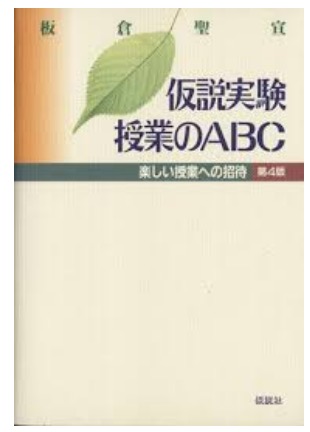 してくれています(著書〈仮説実験授業のABC〉など)。わたしも「たのしさが最も重要である」と考えています。
してくれています(著書〈仮説実験授業のABC〉など)。わたしも「たのしさが最も重要である」と考えています。
「たのしい教育研究所」を設立した今ならはっきりとわかるのですが、「たのしさ」とはつまり「幸せ」のことなのです。何かしら「たのしさ」というと軽いものに感じられるかもしれませんし、そういう使い方をする人もいるかもしれませんが「たのしい教育研究所」の掲げる〈たのしい〉という言葉は「幸せ」という言葉と似た意味なのです。つまり「人間にとって〈たのしいかどうか〉が最も重要だ」という時には「人間にとって〈幸せかどうか〉が最も重要だ」ということで、すごく当たり前のことの様に思うのです。
しかし〈幸せ〉という言葉はこれまであまりにたくさん使われてきたので漠然とした感じが大きい上に、宗教的なものとの結びつきも懸念されるので、やはり「たのしさ」という言葉がふさわしいと思っています。
ところで、一口に〈たのしい・幸せだ〉と言っても、そのたのしさや幸せはたくさんあります。「たくさんあるから良いのだ」ということもあるかもしれません。しかし、その〈たのしさや幸せの構造〉がわかると、回り道をしなくてよいようにもなります。ということで、今回はすこし大風呂敷を広げた様な話になります。その風呂敷は、わたしが教師となって、その大きな成果である「たのしい教育研究所」を設立し、活動をすすめている根本のところに位置するものです。それはきっと、いろいろな人たちの幸せと結びつくものだと思っています。すこし長くなるかもしれません、お付き合いください。
教師になった頃、体育系の私は「たのしい体育」の研究会に属していました。その研究会の中で、ある先生が「たのしいのがいいというなら、ドッジボールよりパ チンコがたのしいのではないでしょうか?」という話をして、揃った先輩達みんなが大笑いしたことがありました。〈ドッチボールの球〉より〈パチンコの玉〉というわけです。
チンコがたのしいのではないでしょうか?」という話をして、揃った先輩達みんなが大笑いしたことがありました。〈ドッチボールの球〉より〈パチンコの玉〉というわけです。
わたしは教師なりたての若造でしたから、特に発言することもありませんでしたが「ドッジボールのわくわくするたのしさを味わってもらえるかどうかが勝負であって、たのしいならなんでもよい、というわけではないでしょう」という様に考えていた事を今でも覚えています。
教師になってずっと、たのしさの中身を問いかけてきました。「〈たのしい〉という言葉の持つ本質的な意味は何なのか?」ということです。
その答えは「たのしい教育研究所」を設立してしばらくして見つかりました。カウンセリングの中でも、たのしい教育を学びに来てくれる方達へもそれを伝えて来たのですけど、こうやって広く伝えるのは初めてのことです。
人間にとって、最もたのしい、つまり最も幸せを感じるものは二つにまとめることができそうです。そして、その二つはどうも統合できそうなのですけど、その一つが「〈自分の可能性・自分の力が伸びるのを感じる時〉だ」ということです。
人が100人いれば100通りの幸せの形があるのだという人生論がほとんどの中、あえてわたしは限定して考えをすすめています。科学の方法がそうだからです。
いいや、そんなことより〈食べている時が一番たのしい〉とか〈睡眠に就く時が一番たのしい〉とか〈漫画を読んでいる時〉〈釣りをしている時〉〈旅行している時〉が一番たのしいとい人もいるでしょう。
もっと大きく〈目指していた仕事に就職できた時〉〈試験に合格した時〉〈結婚した時〉〈子どもが生まれた時〉が一番幸せを感じたということもあるかもしれません。
たしかに人はいろいろな時に、たのしさや幸せを感じます。そんな中であえて少し考えてみたいのです。
例えば「旅行をしている時が一番たのしい」という人の場合でも、「旅行に行く前にいろいろな予定を立てている時もかなりたのしい」ということもありませんか?
〈あんな可能性〉や〈こんな可能性〉をさぐって、わくわくしながらスケジュールを立て、出発の日までたのしく過ごす、ということを体験した人も多いとおもいます。もちろん現地でいろいろなものを見て、いろいろなものを食べて、いろいろな人たちと触れ合っていることは十分たのしく感じるはずですが、旅立つ前と同じくらい、旅立つ前もたのしかった、ということもあると思うのですが、どうでしょうか。場合によっては、実際の旅で体験したことより、旅立つ前に友達と「あっちに行こうよ、あれ食べようよ、どんなホテルかなetc.」と語り合っていた時の方がたのしかったということもあるかもしれません。
そして実際の旅行で体験するいろいろなことは、これまでの自分という枠を超えて、自分の新しい可能性にもつながることだということもできます。
遥か昔。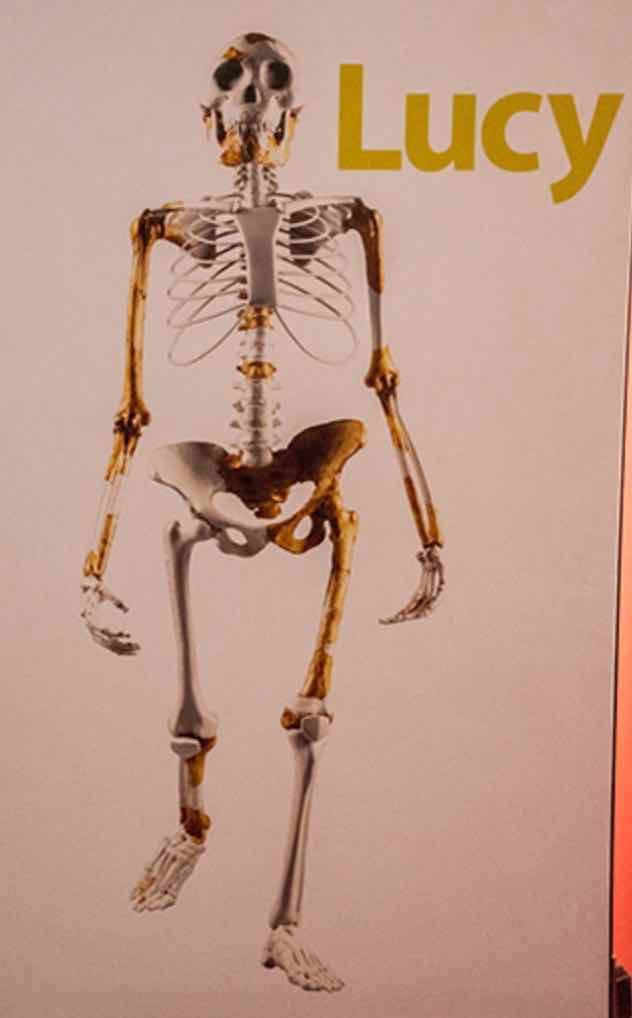
原始時代。
わたし達人類のルーツ、直立歩行してアフリカの草原へ歩みだしたルーシーも、木の実を採取する日々ではなく未知の草原へ「新たな可能性を求めて旅立った」ということもできるのです。
「美味しいものを食べている時が一番たのしい」という場合でも、それは〈生命を維持する〉ことや〈自分の健康や体力を高める〉ことに直結するものとしてDNAに刻まれているから幸せを感じ、たのしさを感じているということでもあるでしょう。〈生と死〉ということでみれば、それは明らかに〈生きるという可能性を伸ばす方向〉に向かったものであるという見方もできるのです。
「目指していた仕事」に就くことができた時、暮らしが安定するとか、親がホッとするという喜びがある中で、「この仕事で自分のいろいろな可能性が開かられる・自分の力を発揮して、その力が高まっていく」という大きな幸福感を感じていると思うのですがどうでしょうか。逆に、実際にその仕事に就いてのち、自分の可能性が開かない現実を感じる人にとって、幸せに感じていたその仕事が、苦痛で逃げたくなる対象にもなるのです。
人類は今、火星へも旅出そうとしています。「火星なんかにいく費用で福祉をなんとかしてくれ」という意見もたくさんある中、やはり人間は宇宙への新たな可能性を求めてやみません。
深海に行ってどうするんだよ、という声もある中でも深海へのチャレンジャー達は新しい可能性を求めてやみません。
話が大きくなった感がありますが、足元を見て、たとえば私たちの周りの赤ん坊を見ると、まさに可能性にあふれています。存在自体が可能性にあふれているだけでなく、赤ん坊の行動そのものは可能性を求めた挑戦、力を高めていく挑戦の繰り返しです。
人間の幸福感・たのしさ感は〈力や可能性を高めて行く〉ところに存在する
という私の仮説は、私自身が他で見聞きしたものではありませんから、これを読んでくれているたくさんの皆さんも「はじめて聞いた」ということでしょう。ですから、なかなか簡単に納得できないことかもしれませんが、その仮説を時間をかけて自分のふるいにかけて(確かめて)いただけたらと思っています。
話をすすめます。
〈たのしい教育〉とはまさに「その人の可能性が伸びて行く教育」です。前回、採用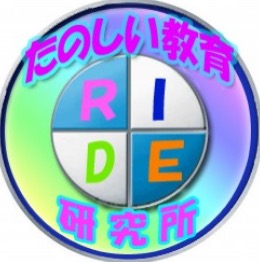 試験特訓に参加した先生たちから出た「図形の見方がわかった。突然先生が出した問題を自分にも解けることができたのが、とても嬉しかった」という感想を紹介しましたが、それもまさに「自分の可能性」が高まったたのしさです。そしてそれは、今度こそ苦手な数学をクリアーして採用試験に合格できるかもしれない、という可能性を感じることができるたのしさです。
試験特訓に参加した先生たちから出た「図形の見方がわかった。突然先生が出した問題を自分にも解けることができたのが、とても嬉しかった」という感想を紹介しましたが、それもまさに「自分の可能性」が高まったたのしさです。そしてそれは、今度こそ苦手な数学をクリアーして採用試験に合格できるかもしれない、という可能性を感じることができるたのしさです。
たのしい教育研究所が提唱する教育は、その人がこれまで感じることができなかった新しい感動を提供することです。そしてそれは間違いなく、その人の可能性を伸ばすことに直結しています。
たのしい教育を体感して、宇宙飛行士になろうという目標を立てる人、教師への道を選ぶ人、そして実際に難関の採用試験を突破していく力を身につけていく人、勉強嫌いだったのに、もっともっといろいろなことを学びたいと思う人、これまで子ども達と苦しい人間関係だったものが、たのしい教育で仲良くなることができる、というその可能性を高めて行く人… そういうたくさんの人たちがどんどん増えています。それはつまり、たのしい教育が幸せにつながっているということです。
たのしい教育研究所にはたくさんのボランティアの方達が顔をだしてくれます。それは、その方達が研究所の活動の中でいろいろな笑顔を体感しているからだと思います。あわせて、たのしい教育研究所の力や可能性に魅力を感じてくれていると思います。もう一つ、この研究所で、自分の力や可能性が高まっていくことを感じてくれているからでしょう。
ますますこの活動の重要性を感じている、今日この頃です。
「いいね」クリックで〈たのしい教育〉を広げませんか➡︎ いいねクリック=人気ブログ!=
これからもますます力を注いでいこうと考えています。みなさんの応援をよろしくお願いいたします。「このサイトないないいいよ」ということで、周りの人たちにこのサイトのアドレス https://tanokyo.com/ をコピーして送っていただけると嬉しいです。
Google広告